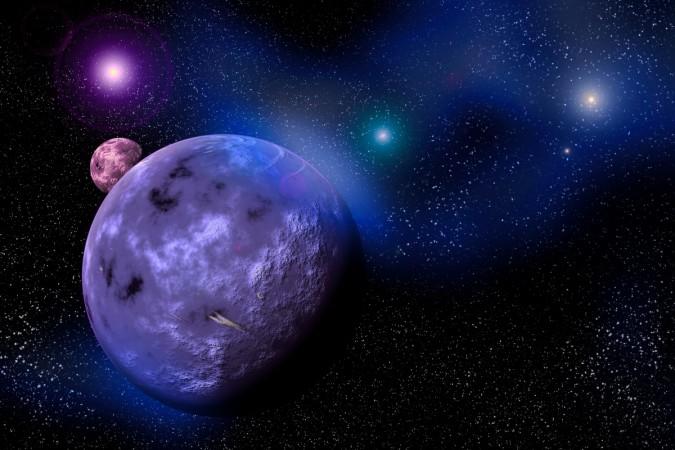What constitutes life? Are we alone in the universe?
There are many such questions that plague researchers and people who look up at the stars in wonder. Over the last two decades or so, thousands of stars and their exoplanets have been identified. There are rocky worlds all over the Milky Way Galaxy that researchers know of which are temperate and possibly could host life. But, one question still remains -- If humans ever come across life in the cosmos, would we even recognise it as life?
The subject was one of the ideas discussed by NASA's Nexus for Exoplanet System Science (NexSS). The main motive of this gathering, according to a release put out by the space agency, is "to take stock of our knowledge in the search for life on distant planets and to lay the groundwork for moving the related sciences forward."
Martin Still, NASA exoplanet scientist, spoke of how astronomy is moving on from theorising about life in the Galaxy to solid science that will lead to and even give a real answer to the question on whether we are alone in the universe or not.
To support these arguments, the NExSS team has published five papers in the journal Astrobiology last week. In the paper, scientists have reportedly taken a complete inventory of biosignatures -- what is known as the most promising signs of life. They have even considered how to interpret the presence of a biosignature, in case they are found in an alien world, notes the statement. The idea is to be able to differentiate between a planet that might be blooming with life and a planet that is not.
As of now, it is not possible to actually go to a far away planet and obtain samples, points out NASA. So, as of now all that is there to study is the light filtering through from the planet's atmosphere from its host star through telescopes that are stationed both on Earth as well as space-based ones like the Hubble and the soon-to-be-launched James Webb Telescope. Light reflecting off planets go through the gasses there and through it, seasonal variations are seen. A green reflection can also signal life, notes the report.

How can scientists be so sure that this method will actually work? Earth is the only planet that humans know of where life is certainly prevalent, the atmosphere on Earth has all the biosignatures that are needed as evidence to see that the planet is indeed fertile. Researchers are aware about the significant differences that can be expected from an alien world and one that is filled with life, but not the kind that is familiar to humans.
Many planets that have been found near cooler stars than the Sun emit light in the infrared spectrum, which is not visible, but will still deliver warmth. The Solar System's Sun is bright, hot and gives out several spectra of visible and invisible light.
Mary Parenteau, an astrobiologist and microbiologist at NASA and co-author of the paper asks, "What does a living planet look like?"
"We have to be open to the possibility that life may arise in many contexts in a galaxy with so many diverse worlds — perhaps with purple-colored life instead of the familiar green-dominated life forms on Earth, for example. That's why we are considering a broad range of biosignatures."
For a long time, scientists have argued that oxygen -- a result of photosynthesis with light and carbon dioxide is a major biosignature. However, this is not a foolproof way to look for life. There are many chemical processes that have nothing to do with biology but still produce oxygen.
Also, it is possible for life to be blooming without oxygen as well. Early Earth, says one of the researchers, was a place where life was abundant, but oxygen was not.
Shawn Domagal-Goldman, an astrobiologist at NASA's Goddard Space Flight Center on the possibility of actually finding life said, "We won't have a 'yes' or 'no' answer to finding life elsewhere. What we will have is a high level of confidence that a planet appears alive for reasons that can only be explained by the presence of life."















